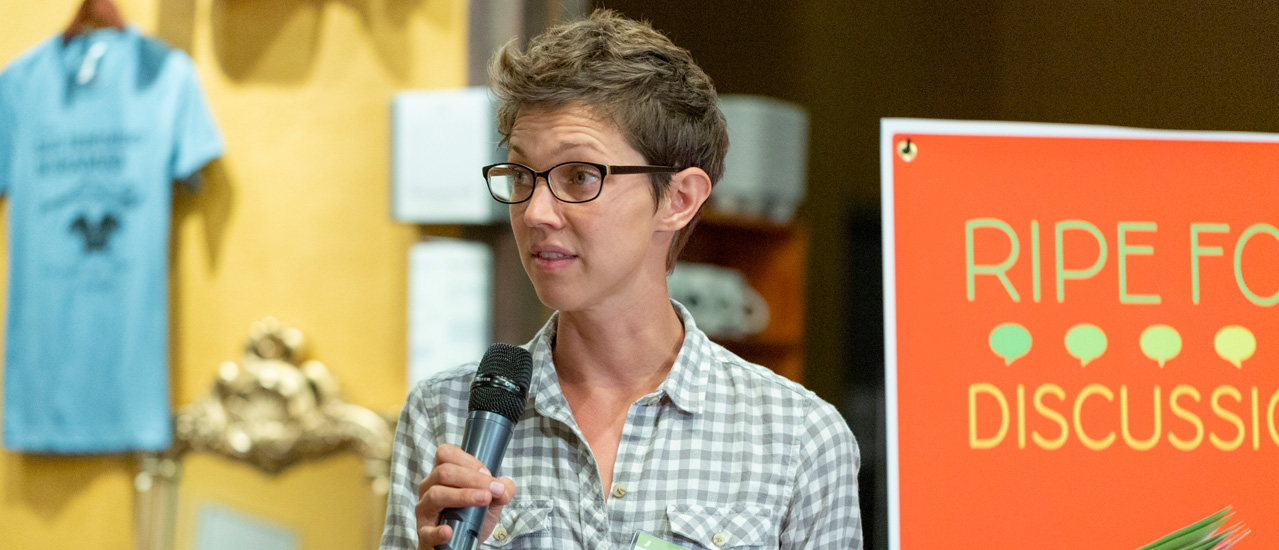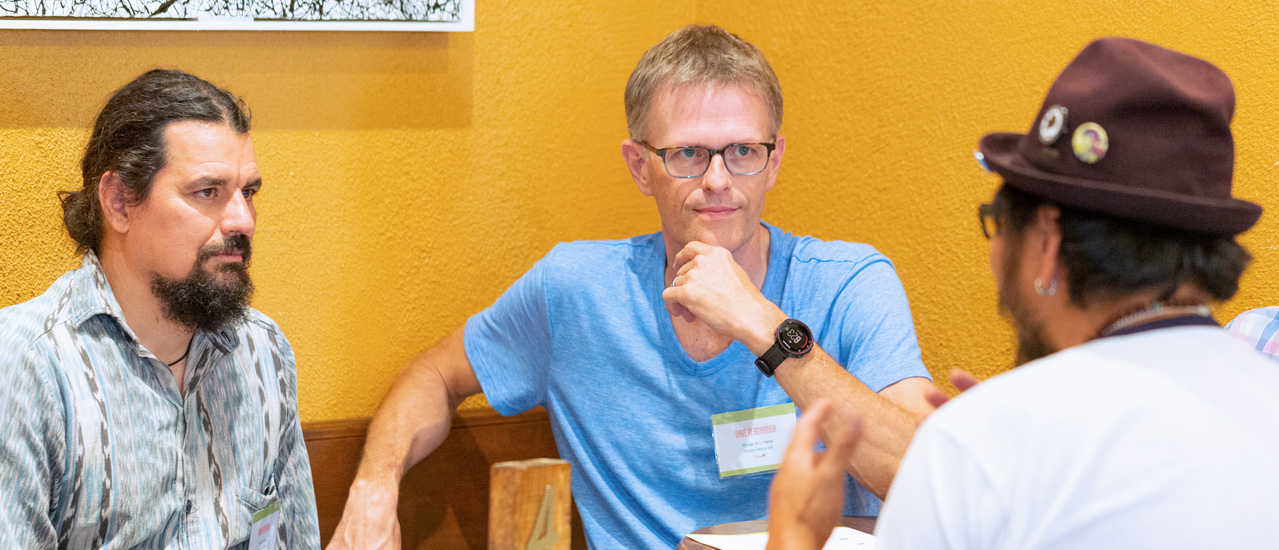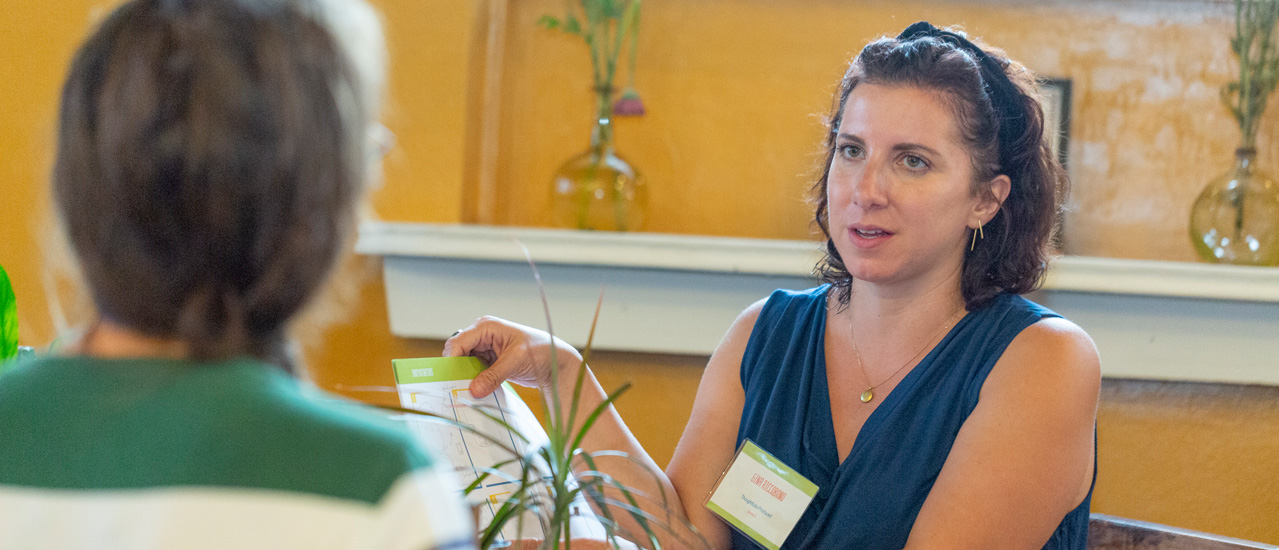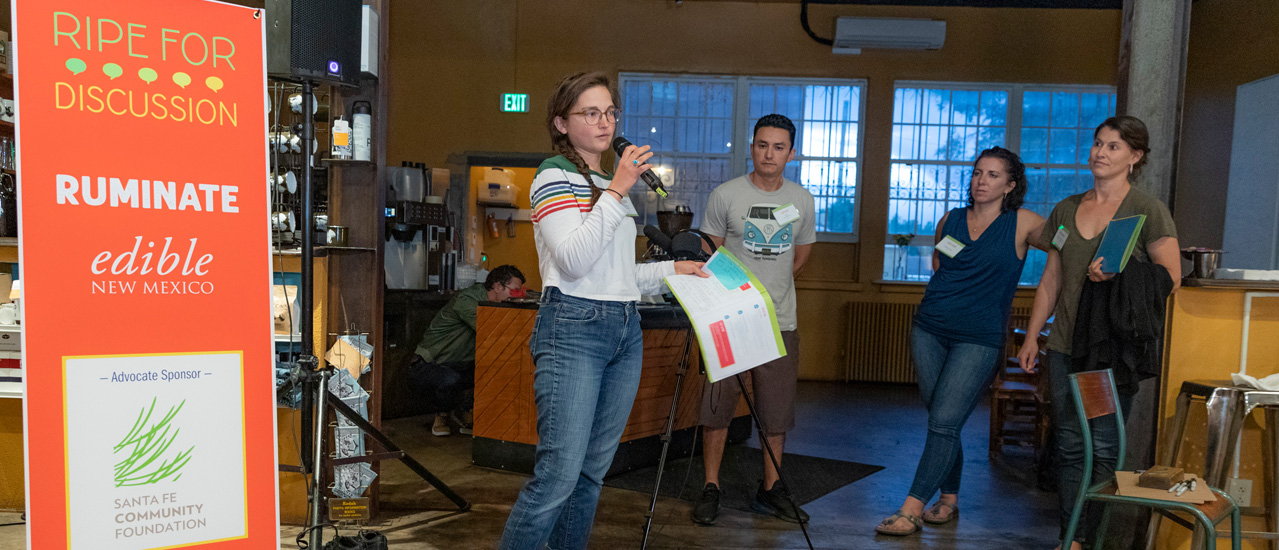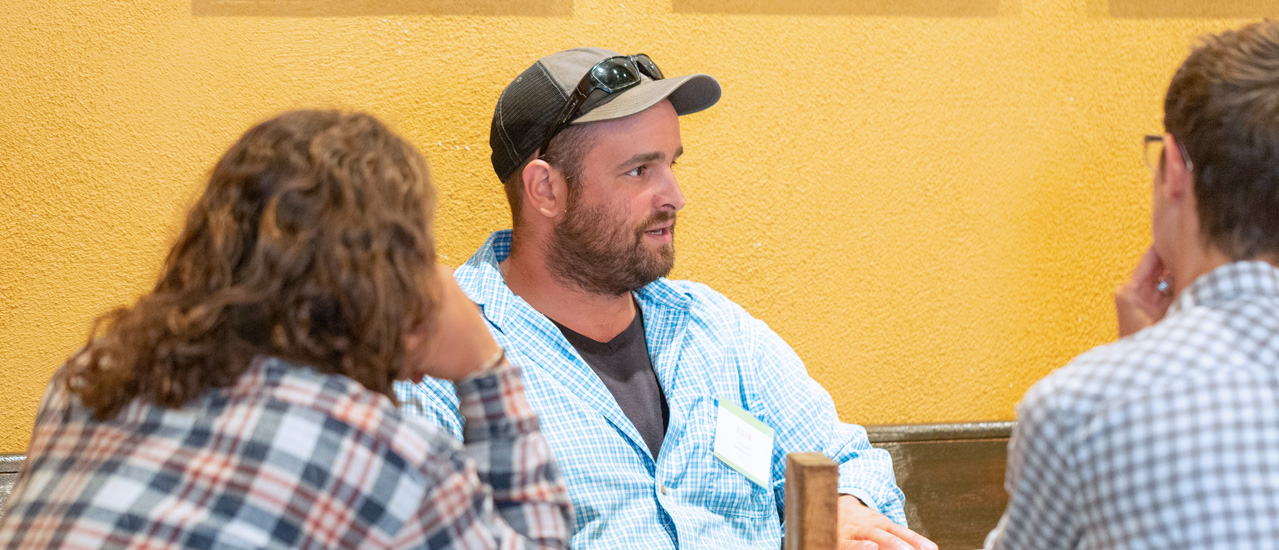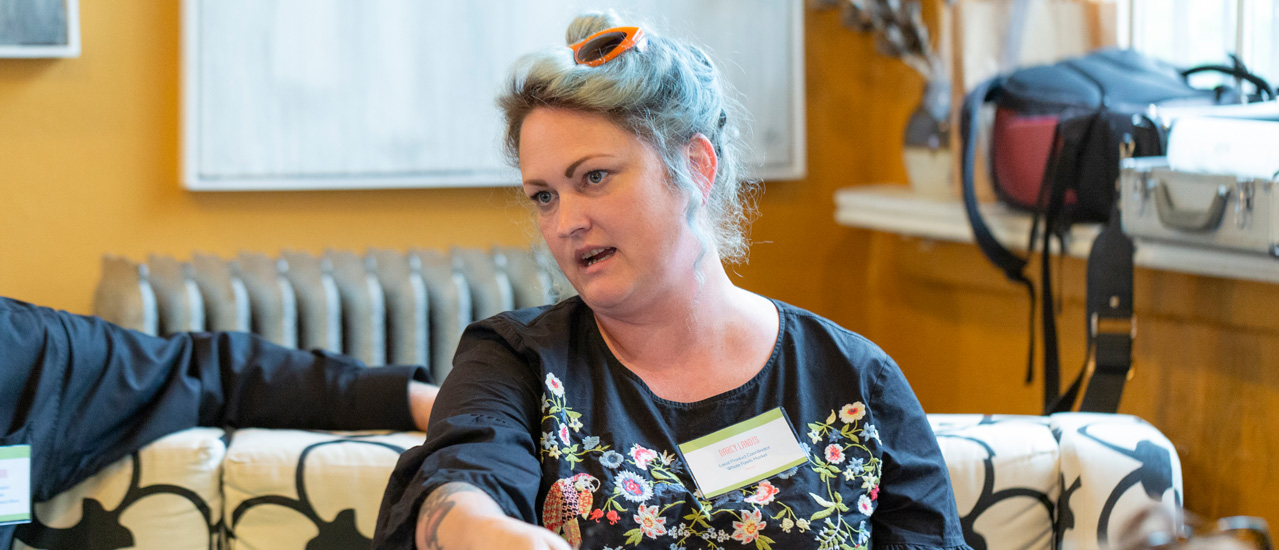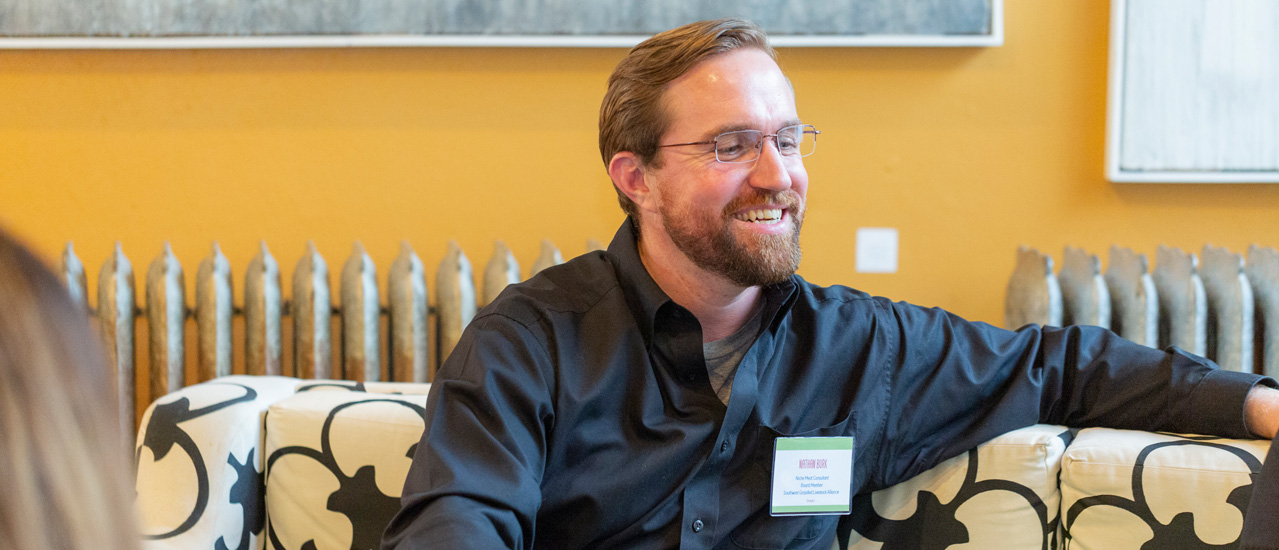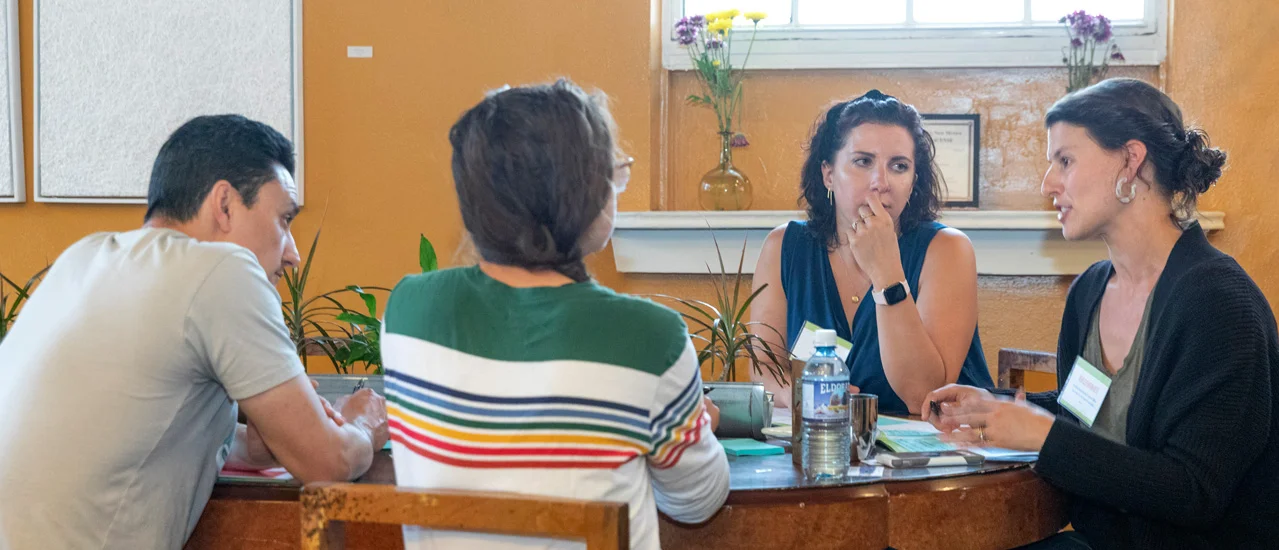Darcy Landis
Local Product Coordinator, Whole Foods Market ↓
Darcy Landis heads up the Whole Foods Market Local Program for the Rocky Mountain Region, which includes curating and on-boarding local products and producers in CO, ID, KS, NM, UT, Kansas City, MO and El Paso, TX. She is part of a team of 3, working full time in the Rocky Mountain region to support and grow Whole Food’s market commitment to local producers. Darcy started with Whole Foods Market in 1999 and has dedicated her professional and personal life to supporting community and the unique flavors each state in the region offers. All local products introduced at Whole Foods Market must meet rigorous quality standards for ingredients and manufacturing processes. Darcy mentors vendors on how to bring their product to market and also assists in packaging, commodities sourcing, processing, and business development. Darcy also oversees the region’s Local Producer Loan Program (LPLP)—a unique low interest, non-collateralized loan program from Whole Foods Market available to producers which allows them to scale their businesses. Loans range from $1,000 – $100,000 and hit a sweet spot in lending circles for producers who often find themselves caught between micro-loan and jumbo-loan options. To date, Whole Foods Market has given over $25,000,000 in loans. The average loan size in the Rocky Mountain region is $54,000. Darcy and her team have given $2.8M in 52 loans to date. Brands like Justin’s Nut Butter, acquired by Hormel, are historic LPLP recipients who hailed from the region. “I believe in food, and I believe in its ability to create community—at the table, in the market, or on the farm. Connection with our food enlivens and inspires us. We demand more of the sources of our food and of ourselves when we are connected to it. We understand the value of what we eat when we know how and by whom it was produced. I want to help our customers make that connection and feel a sense of pride of place when they buy local products from our stores. It really does matter. Bringing the best and brightest forward in our communities gives me deep pride—I know our work helps grow commerce and connection, and deepens our investment in local, sustainable foodsheds.”


